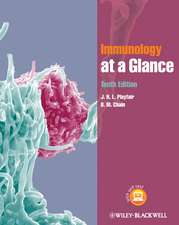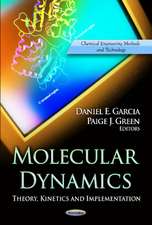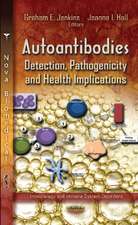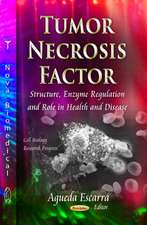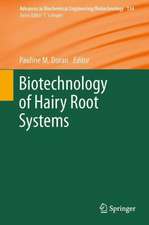Molecular Evolution of the Major Histocompatibility Complex: Nato ASI Subseries H:, cartea 59
Editat de Jan Klein, Dagmar Kleinen Limba Engleză Paperback – 15 dec 2011
Din seria Nato ASI Subseries H:
- 18%
 Preț: 953.82 lei
Preț: 953.82 lei -
 Preț: 393.13 lei
Preț: 393.13 lei - 15%
 Preț: 643.34 lei
Preț: 643.34 lei - 15%
 Preț: 643.34 lei
Preț: 643.34 lei - 15%
 Preț: 641.03 lei
Preț: 641.03 lei - 15%
 Preț: 642.83 lei
Preț: 642.83 lei - 15%
 Preț: 642.51 lei
Preț: 642.51 lei - 5%
 Preț: 712.81 lei
Preț: 712.81 lei -
 Preț: 392.97 lei
Preț: 392.97 lei - 15%
 Preț: 651.02 lei
Preț: 651.02 lei - 15%
 Preț: 640.24 lei
Preț: 640.24 lei - 18%
 Preț: 948.61 lei
Preț: 948.61 lei - 15%
 Preț: 655.92 lei
Preț: 655.92 lei - 15%
 Preț: 655.92 lei
Preț: 655.92 lei - 15%
 Preț: 653.14 lei
Preț: 653.14 lei - 15%
 Preț: 650.19 lei
Preț: 650.19 lei - 15%
 Preț: 655.13 lei
Preț: 655.13 lei - 15%
 Preț: 652.17 lei
Preț: 652.17 lei - 15%
 Preț: 675.58 lei
Preț: 675.58 lei - 18%
 Preț: 958.07 lei
Preț: 958.07 lei - 18%
 Preț: 961.41 lei
Preț: 961.41 lei - 18%
 Preț: 970.56 lei
Preț: 970.56 lei - 5%
 Preț: 1100.30 lei
Preț: 1100.30 lei - 5%
 Preț: 376.43 lei
Preț: 376.43 lei - 15%
 Preț: 650.86 lei
Preț: 650.86 lei - 15%
 Preț: 644.63 lei
Preț: 644.63 lei - 15%
 Preț: 655.60 lei
Preț: 655.60 lei - 18%
 Preț: 963.47 lei
Preț: 963.47 lei - 15%
 Preț: 648.42 lei
Preț: 648.42 lei - 5%
 Preț: 731.43 lei
Preț: 731.43 lei - 15%
 Preț: 653.14 lei
Preț: 653.14 lei - 18%
 Preț: 960.13 lei
Preț: 960.13 lei - 18%
 Preț: 968.34 lei
Preț: 968.34 lei - 18%
 Preț: 953.97 lei
Preț: 953.97 lei - 15%
 Preț: 654.95 lei
Preț: 654.95 lei - 15%
 Preț: 652.49 lei
Preț: 652.49 lei - 15%
 Preț: 650.86 lei
Preț: 650.86 lei - 5%
 Preț: 367.64 lei
Preț: 367.64 lei - 5%
 Preț: 1104.68 lei
Preț: 1104.68 lei - 18%
 Preț: 953.20 lei
Preț: 953.20 lei - 15%
 Preț: 651.99 lei
Preț: 651.99 lei - 15%
 Preț: 647.27 lei
Preț: 647.27 lei - 15%
 Preț: 653.00 lei
Preț: 653.00 lei - 15%
 Preț: 656.25 lei
Preț: 656.25 lei - 18%
 Preț: 962.35 lei
Preț: 962.35 lei - 15%
 Preț: 644.82 lei
Preț: 644.82 lei - 15%
 Preț: 666.55 lei
Preț: 666.55 lei - 15%
 Preț: 642.68 lei
Preț: 642.68 lei - 15%
 Preț: 645.96 lei
Preț: 645.96 lei - 15%
 Preț: 651.84 lei
Preț: 651.84 lei
Preț: 1426.71 lei
Preț vechi: 1501.79 lei
-5% Nou
Puncte Express: 2140
Preț estimativ în valută:
272.99€ • 286.56$ • 226.59£
272.99€ • 286.56$ • 226.59£
Carte tipărită la comandă
Livrare economică 11-25 aprilie
Preluare comenzi: 021 569.72.76
Specificații
ISBN-13: 9783642846243
ISBN-10: 3642846246
Pagini: 532
Ilustrații: XIII, 509 p.
Dimensiuni: 170 x 242 x 28 mm
Greutate: 0.84 kg
Ediția:Softcover reprint of the original 1st ed. 1991
Editura: Springer Berlin, Heidelberg
Colecția Springer
Seria Nato ASI Subseries H:
Locul publicării:Berlin, Heidelberg, Germany
ISBN-10: 3642846246
Pagini: 532
Ilustrații: XIII, 509 p.
Dimensiuni: 170 x 242 x 28 mm
Greutate: 0.84 kg
Ediția:Softcover reprint of the original 1st ed. 1991
Editura: Springer Berlin, Heidelberg
Colecția Springer
Seria Nato ASI Subseries H:
Locul publicării:Berlin, Heidelberg, Germany
Public țintă
ResearchCuprins
Organization and evolution of the MHC chromosomal region: An overview.- Reconstruction of phylogenetic trees and evolution of major histocompatibility complex genes.- Trans-species polymorphism of HLA molecules, founder principle, and human evolution.- Calibrating evolutionary rates at major histocompatibility complex loci.- Concerted mutagenesis: Its potential impact on interpretation of evolutionary relationships.- Two models of evolution of the class I MHC.- Evolution of MHC domains: Strategy for isolation of MHC genes from primitive animals.- Generation of allelic polymorphism at the DRB1 locus of primates by exchange of polymorphic domains: A plausible hypothesis?.- A phylogenetic investigation of MHC class II DRB genes reveals convergent evolution in the antigen binding site.- Diversification of class II A? within the genus Mus.- Molecular and genetic mechanisms involved in the generation of Mhc diversity.- Evidence for multiple mutational mechanisms which generate polymorphism at H-2K.- Contributions of interlocus exchange to the structural diversity of the H-2K, D, and L alleles.- Evolution of Great Ape MHC class I genes.- Evolution of New World primate MHC class I genes.- Polymorphisms of the major histocompatibility complex in Old and New World primates.- Mhc class I genes of New World monkeys and their relationship to human genes.- Selective inactivation of the primate Mhc-DQA2 locus.- Is DQB2 functional among nonhuman primates?.- Alu repeats and evolution of the HLA-DQA1 locus.- The Alu repeats of the primate DRB genes.- Interpreting MHC disequilibrium.- Frozen haplotypes in Mhc evolution.- The age and evolution of the DRB pseudogenes.- Organization and evolution of the HLA-DRB genes.- The MHC of Peromyscus Leucopus (Mhc-Pele) illustrates large- andsmall-scale expansion in the phylogeny of MHC loci.- Sequence and evolution of bovine MHC class I genes.- Evolution of MHC molecules in nonmammalian vertebrates.- The polymorphic B-G antigens of the chicken MHC - Do the structure and tissue distribution suggest a function?.- Evolution of primate C4 and CYP21 genes.- Mapping of a hot spot in the major recombination area of the mouse H-2 complex.- Conservation versus polymorphism of the MHC in relation to transplantation, immune responses, and autoimmune disease.- HLA associations with malaria in Africa: Some implications for MHC evolution.- The evolution of MHC-based mating preferences in Mus.- Possible MHC associated heterozygous advantage in wild mouse populations.- Antigen presentation by neoclassical MHC class I gene products in murine rodents.- Mls antigens (superantigens), class II MHC, and Tcr repertoire: Co-adaptive evolution.- Diversity and evolution at the Eb recombinational hotspot in the mouse.- Molecular dissection of the Eb recombinational hotspot in the mouse.- Molecular cloning of nurse shark cDNAs with high sequence similarity to nucleoside diphosphate kinase genes.- Author Index.

